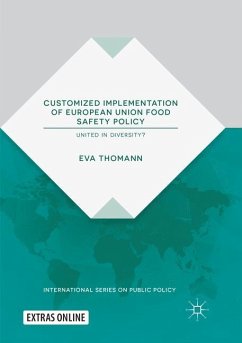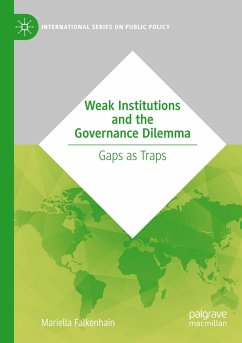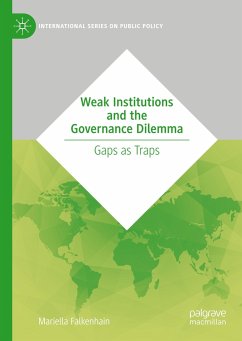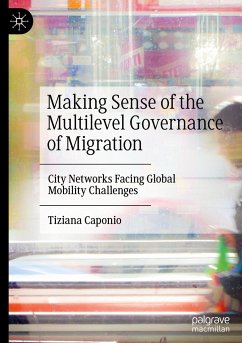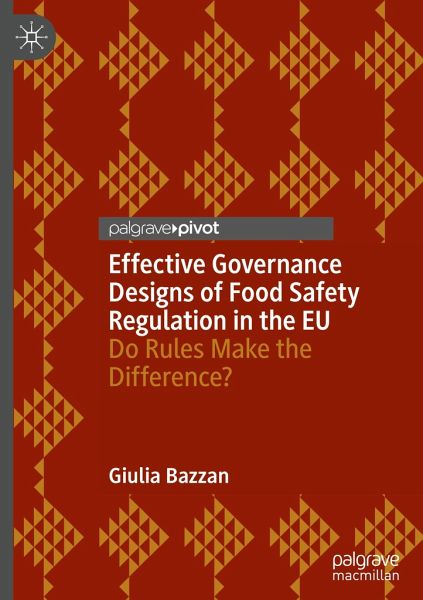
Effective Governance Designs of Food Safety Regulation in the EU
Do Rules Make the Difference?

PAYBACK Punkte
23 °P sammeln!
This book provides insights on regulatory effectiveness in the field of food safety, by focusing on the variety of institutional factors affecting regulatory outcomes. Drawing upon the Institutional Analysis and Development framework, it investigates differences in effectiveness of food safety regulation and explains them by differences in domestic governance designs, by applying Qualitative Comparative Analysis. The empirical focus of the book is the food safety governance designs of 15 EU Member States, which are investigated through the collection of an original dataset inclusive of measure...
This book provides insights on regulatory effectiveness in the field of food safety, by focusing on the variety of institutional factors affecting regulatory outcomes. Drawing upon the Institutional Analysis and Development framework, it investigates differences in effectiveness of food safety regulation and explains them by differences in domestic governance designs, by applying Qualitative Comparative Analysis. The empirical focus of the book is the food safety governance designs of 15 EU Member States, which are investigated through the collection of an original dataset inclusive of measures of independence and accountability of the domestic food safety agencies, of policy capacity and of food safety delivered. The results show the prominent role of the institutional dimension of policy capacity in producing regulatory effectiveness, in conjunction with an integrated model of distribution of the regulatory tasks. As to ineffective governance, the conjunction of low independence or low accountability with low institutional capacity produce ineffective responses.







